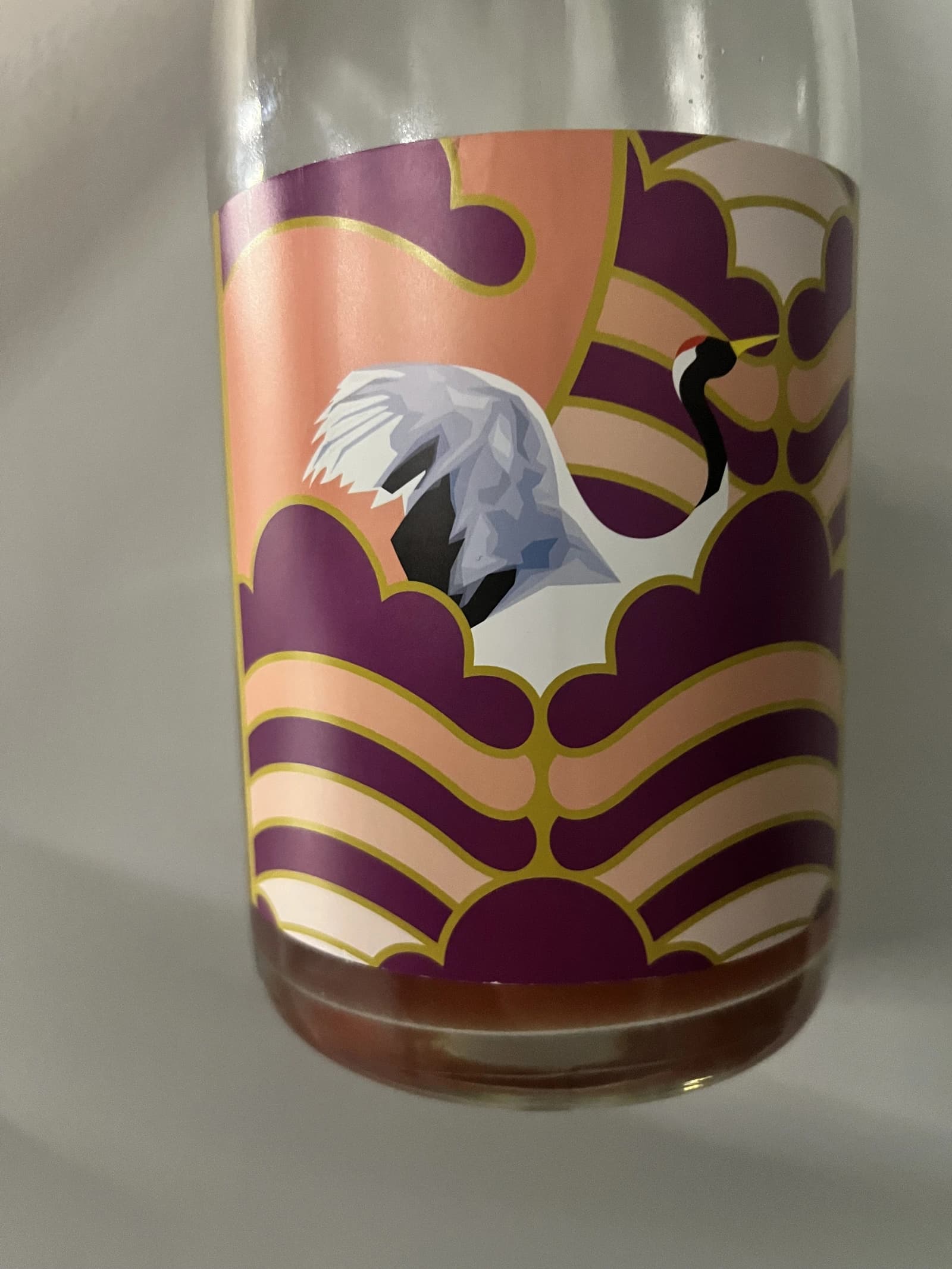Grape Republic Rosa Frizzante 2021
- Region
- Japan » Nihon Wine (日本ワイン)
- Type
- rose ancestral sparkling, brut nature
- Producer
- Vintage
- 2021
- Grapes
- Delaware, Steuben
- Alcohol
- 11
- Sugar
- 12
- Volume
- 750 mL
- Cellar
- not available

This wine is crafted entirely from grapes grown in Yamagata Prefecture, using Delaware (53%) and Steuben (47%) varieties. The grapes underwent various vinification techniques before being blended to ensure the wine remained balanced and not overly tannic. Fermentation took place in stainless steel vats, and the wine was bottled with 12g/L of residual sugar to create a light pétillant effect.
To fine-tune the sugar content, Delaware juice was added before bottling, triggering a second fermentation in the bottle. No antioxidants were used in the process, staying true to a natural approach.
Ratings
The wine was served blind, and though I didn't pinpoint the country, I put my bet on Kindeli, a New Zealand venture by Alex Craighead, who is associated with Grape Republic. In that sense, I consider it a partial success. Rating it was a challenge; I wavered between 3.9 and 4.0, ultimately settling on 3.9 due to the blind tasting element and a touch of caution.
This wine is truly delightful, featuring prominent strawberry notes alongside herbal hints, wet pebbles, and a slight oily texture. Its freshness is complemented by a pleasing herbal dryness in the finish, which balances the wine's subtle sweetness (around 12g/L of residual sugar). Overall, it's a very enjoyable experience with a compact and light finish.
About Producer
Originally a restaurateur and sommelier, Kazuomi Fujimaki took a significant leap in 2015 by leaving Tokyo to become a winemaker in the village of Shinden in Yamagata. With no prior experience in wine production, he established three simple rules for himself: the vineyards must be cultivated organically, no additives such as sulfur are to be used during the winemaking process, and the wines must at some point undergo amphora fermentation or ageing. His goal with Grape Republic is to create vibrant and pure Japanese wines naturally, utilizing indigenous grape varieties grown around the Yamagata region.
Central to Fujimaki’s philosophy is the expression of terroir in his wines, encompassing not only the climate, geography, and soil but also the local culture and people. The vineyards and winery are located in Nanyō City, Yamagata Prefecture, where the northern slopes provide fertile ground that stretches southwards. Although the area is well-suited for viticulture, it remains largely underutilized by other winemakers—a situation Fujimaki is determined to change by demonstrating the potential for high-quality grape cultivation and natural winemaking, thereby inspiring other vintners to settle in the region.
Grape Republic’s natural wines are made exclusively from grapes harvested around Nanyō City, with a strict zero-zero approach—no chemicals such as fertilizers, pesticides, herbicides, or insecticides are used on the land, and no additives like sugar or acid are introduced in the cellar. Production, though small at 30,000 bottles annually, is steadily increasing. From just 100kg of grapes processed in its first harvest year of 2015, collaboration with local farmers boosted this to about 40,000 kg by 2017. The aim is to continue expanding production, partly to encourage more local farmers to engage in winemaking.
2017 also marked the year Grape Republic completed its professional cellar. A significant number of Spanish amphorae were installed, playing a crucial role in the fermentation processes. After harvesting, the grapes are destemmed and foot-trodden before being placed in the amphorae, which are sealed to facilitate most of the ‘carbonic maceration’ fermentations.